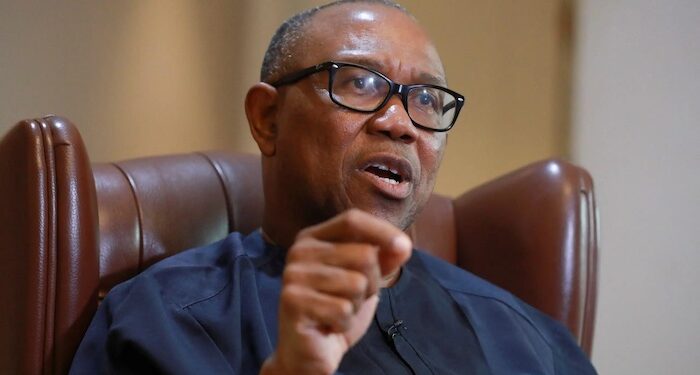Peter Obi, the 2023 presidential candidate for the Labour Party in Nigeria, has shared key recommendations for African countries on how to navigate the disruptive tariffs introduced by former U.S. President Donald Trump. Speaking in London on Tuesday at the plenary session of the Commonwealth Enterprise and Investment Council (CWEIC) Trade and Investment Summit 2025, Obi addressed the theme, “Africa’s Role in the New Global Economy,” urging African leaders to focus on harnessing their continent’s vast youthful human capital.
Obi stressed that Africa’s enormous workforce, comprising over a billion people, should be seen as a key asset in the continent’s economic transformation. According to him, investing in skill development and boosting productivity is essential for both Africa’s growth and its contribution to the global economy.
“The topic of Africa’s role in the global economy is crucial, given the immense opportunities within the continent,” Obi said. “If these opportunities are fully harnessed, they will have a far-reaching positive impact on the Commonwealth and the world at large.”
He highlighted that recent economic shifts, especially those prompted by President Trump’s interventions, have disrupted long-standing economic assumptions worldwide, with many countries adjusting proactively to secure their economies. Unfortunately, Africa has not yet taken similar steps to protect its interests, Obi noted.
Obi pointed out that Africa’s contribution to global trade remains alarmingly low, with the continent’s share standing at just two to three percent. Additionally, Africa’s share of global GDP is about three percent, with a GDP per capita of only $1,900. This is in stark contrast to Asia, where GDP per capita is approximately $9,000. Despite having 1.5 billion people and a wealth of natural resources, Africa’s economic growth has stagnated for over two decades, Obi observed.
Africa is home to the world’s largest concentration of working-age people, Obi continued, and the continent boasts abundant natural resources, including 60 percent of the world’s arable land and 30 percent of global mineral resources. Yet, despite these advantages, Africa has not experienced the same economic transformation seen in other parts of the world.
Obi advocated for the continent to invest in its youthful workforce to create a skilled and productive labor force that will contribute to both African and global development. He also pointed out the potential for Africa’s agricultural sector to become a global powerhouse, with the market projected to grow from $280 billion annually to over $1 trillion by 2030. This growth, he emphasized, could transform Africa into a net exporter of food, benefiting the global economy.
The key to realizing this potential, according to Obi, is leadership that prioritizes productivity, innovation, and investment in human capital. He noted that some better-governed African nations have already demonstrated the potential for creating higher-value goods and services, but the challenge lies in scaling up these efforts.
Obi called for a shift in leadership that focuses on developing the continent’s productive capacities, particularly through education, healthcare, and poverty alleviation. He also urged African countries to be strategic in leveraging whatever global trade arrangements remain after the disruptions caused by Trump’s policies.
“This is a pivotal moment for Africa. It requires transformative leadership and a renewed focus on productivity to rebuild African economies and create lasting change,” Obi concluded.


